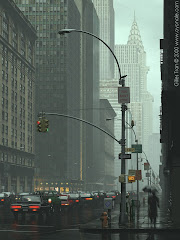 A persistent question I get these days is:
A persistent question I get these days is:What are you going to school for?
To which I usually reply, good question.
It is, when considered carefully, a damn fine question. One I keep asking myself, never finding a totally satisfactory answer to. Certainly I am there to learn, as that's the university's trade. I could answer, I am correcting the blur of my painful and persistent ignorance, but most folk would scoff at the unnecessary poetics involved here, so usually I just reply my standard refrain, good question.
I, like many people in this postmodern-hypersyntheticized on-the-cusp-of-it culture, am staring up into the gilded eyes of the ancestors, and asking them why. While I'm finding answers to that question by going to school, it (my hypothetical trial by jury of past civilizations or my simple question why) remains painfully obscured by my own personal involvement in the the same social strand, and thus is difficult to chart.
Imagine your reading a book, but you want to be closer to the words, to be more involved, so you put your nose up to the page, and suddenly realize that you can read very little, if anything at all; that is the blur which I am seeking to correct. But I can't step out of my life and observe the universal dance from some third party position, like the dark side of the moon, so the question then is how does one really correct that blur. I can talk about detaching my nose from the pages of life, of becoming more impartial and less specific, but the process of that means destroying (or transmuting in some way) the litany of meme's I've inherited, the very ones even now surging through my nervous system determining action without my total conscious involvement.
So don't stick your nose too close to life, that's a good start. Remain somewhat detached, but not too detached. If you push the book out too far, it has the reverse effect, again detachment. There is that perfect zone of distance when reading a book that allows for an almost otherworldly experience, when the words themselves are not just scribbles on white but animated images in their own right. That same distance is what I think I mean when I say correcting the blur.
The parable of the book reader closely charts my own life. Starting from a correct distance, I moved closer to an idea, an ideology if you will, and found myself not being able to understand anything except the small-print of that message, which was about nothing special in particular, just something that a lot of other people were also focusing on. I lost my innate position of equanimity, that perfect distance from life had been channeled into some thing, some particular, and judgement of the rest of the universe was impaired because of it.
And then I retreated, away from the book entirely, considering it a waste of time because it had tricked me into narrowing my gaze so far that it blurred in the first place; detachment was the only choice at the time. School then, to round out my point (not that rants need points), is bringing me back into equanimity with the world, helping me find some moral equivalence to my own experience, showing me that its been much better, but also much worse in past times, and those who were the happiest were the ones who learned to keep their distance only enough so as to not get burned when the fires started.
Maybe that's just fence-sitting, I don't know. I think of it more like being a pragmatist, a scientist, a rationalist. Don't become too emotionally wedded to one position, because that is the threshold to the wonderland of ideology, an exclusive and very dangerous place. But don't throw it all out either, as a lot of work has gone into to trying to figure out what exactly is going on here.
The middle path. The Buddha had it right, and it took 3000 years to successfully obscure that simple message behind the words of ten thousand books.

No comments:
Post a Comment